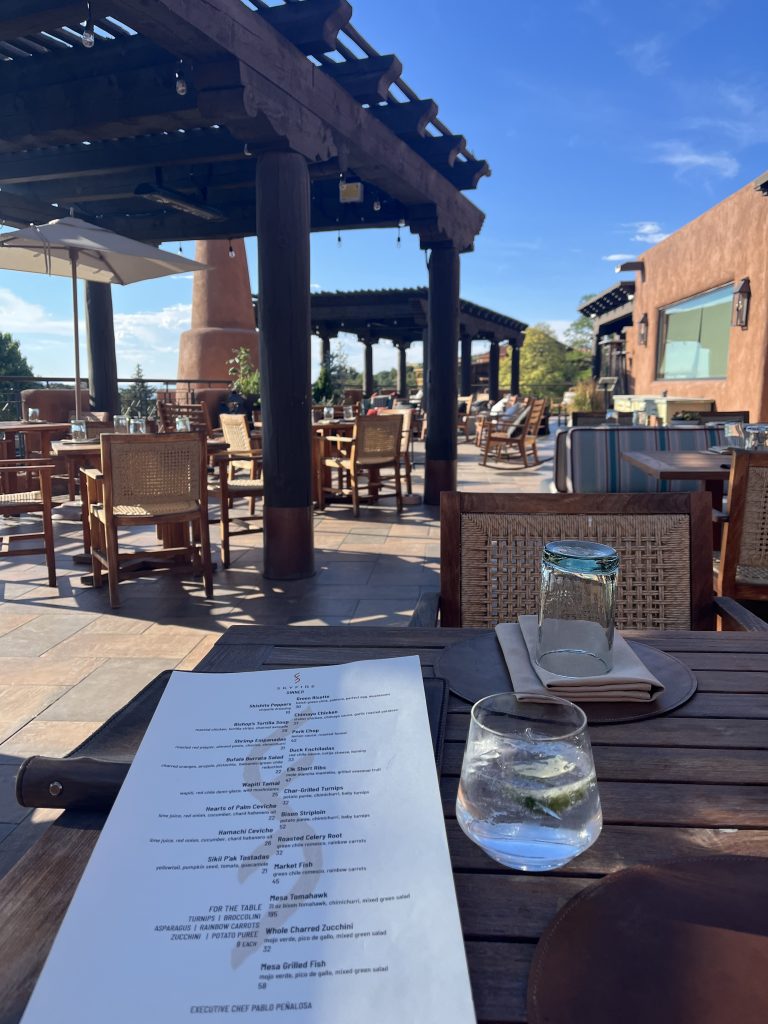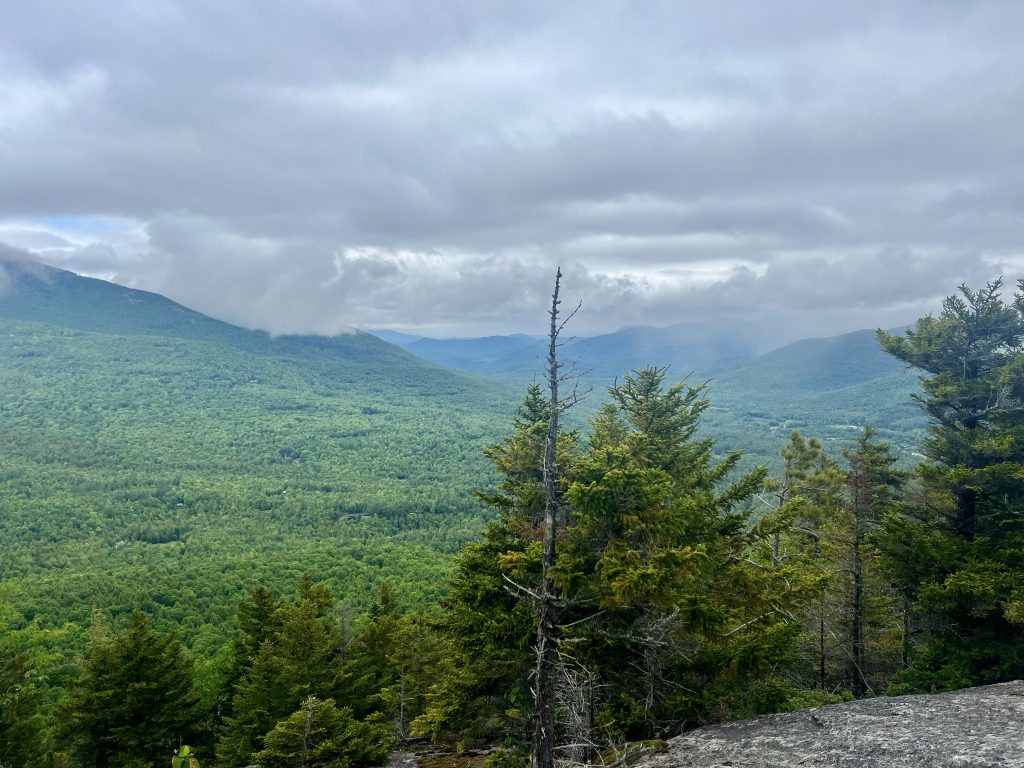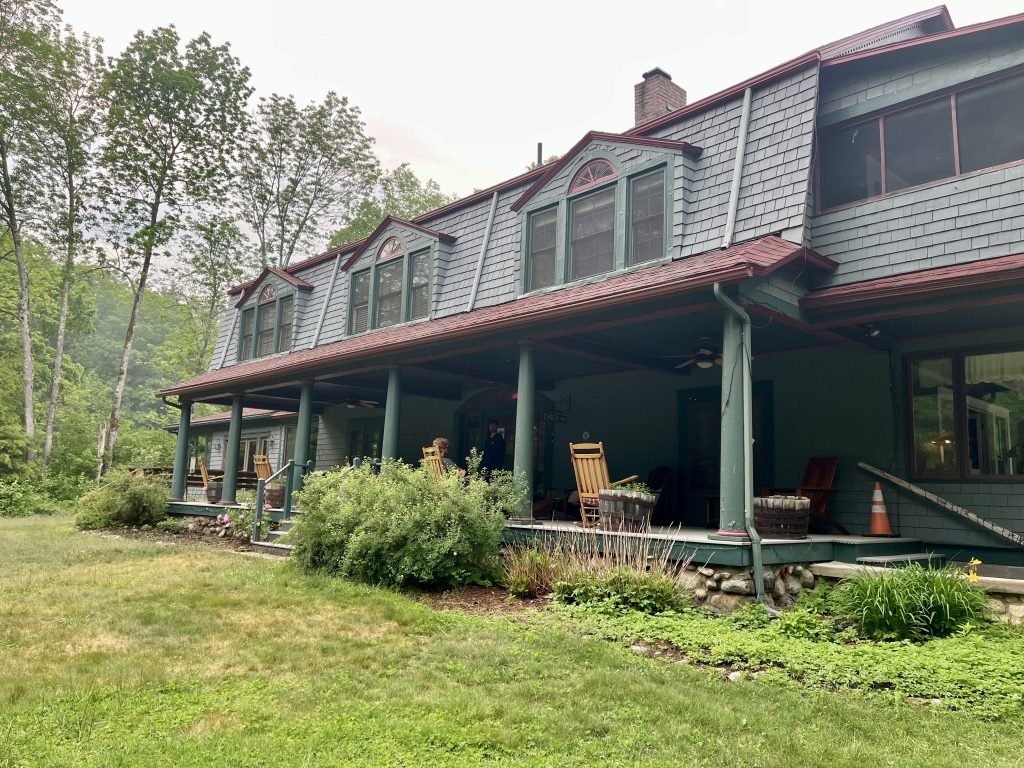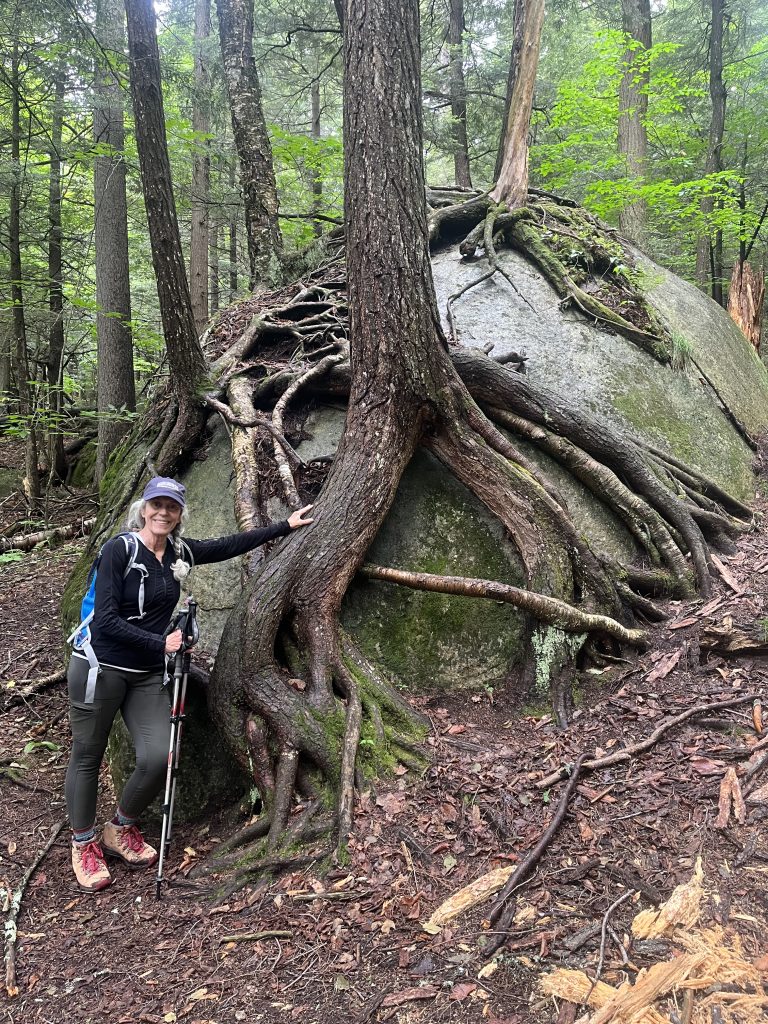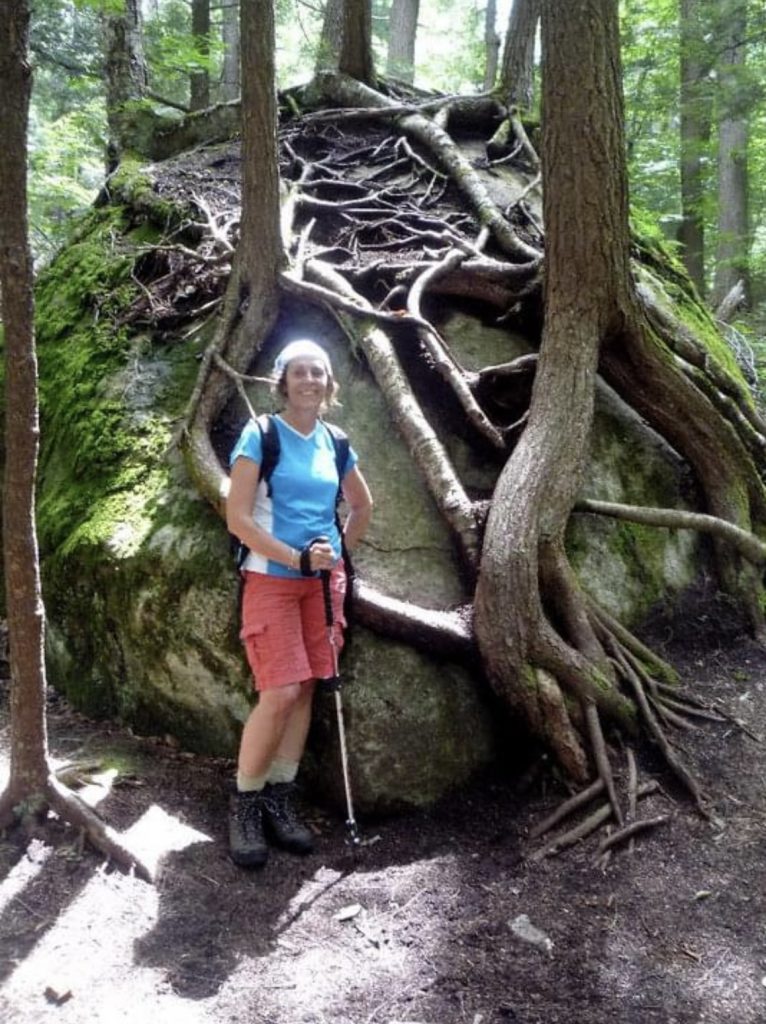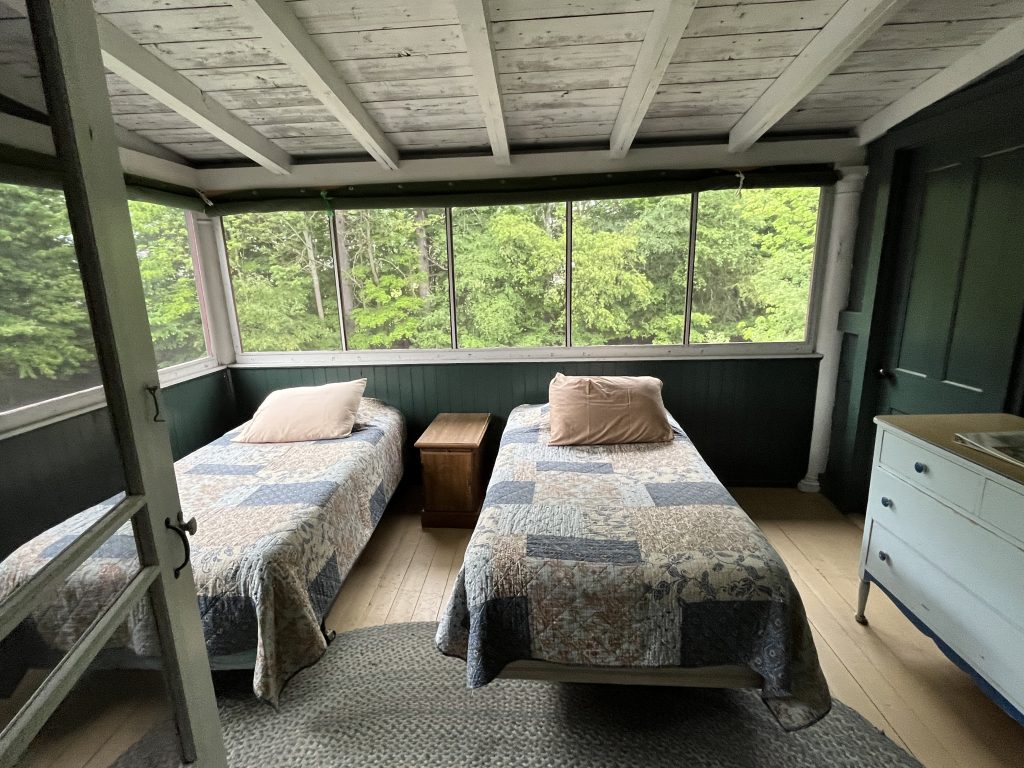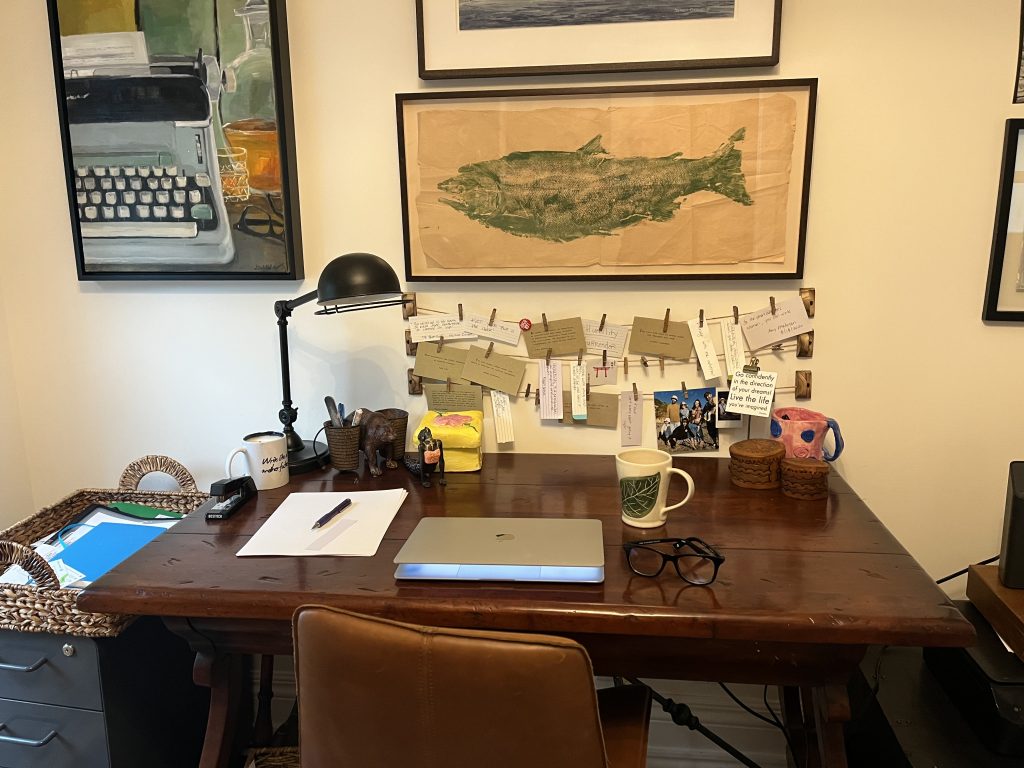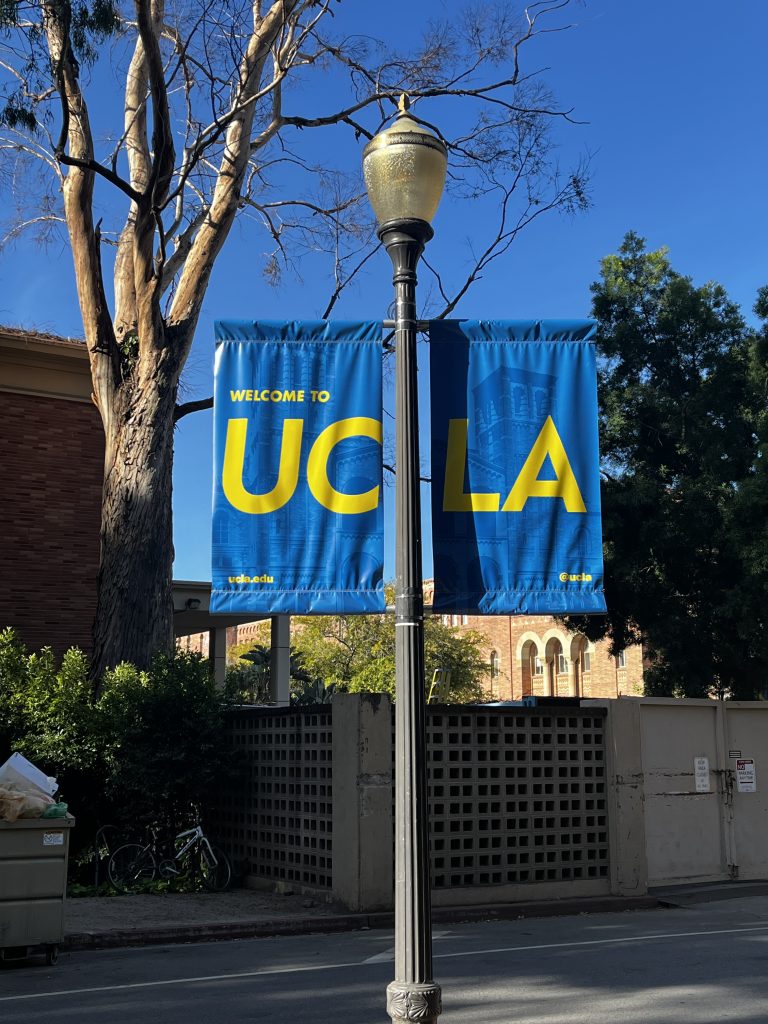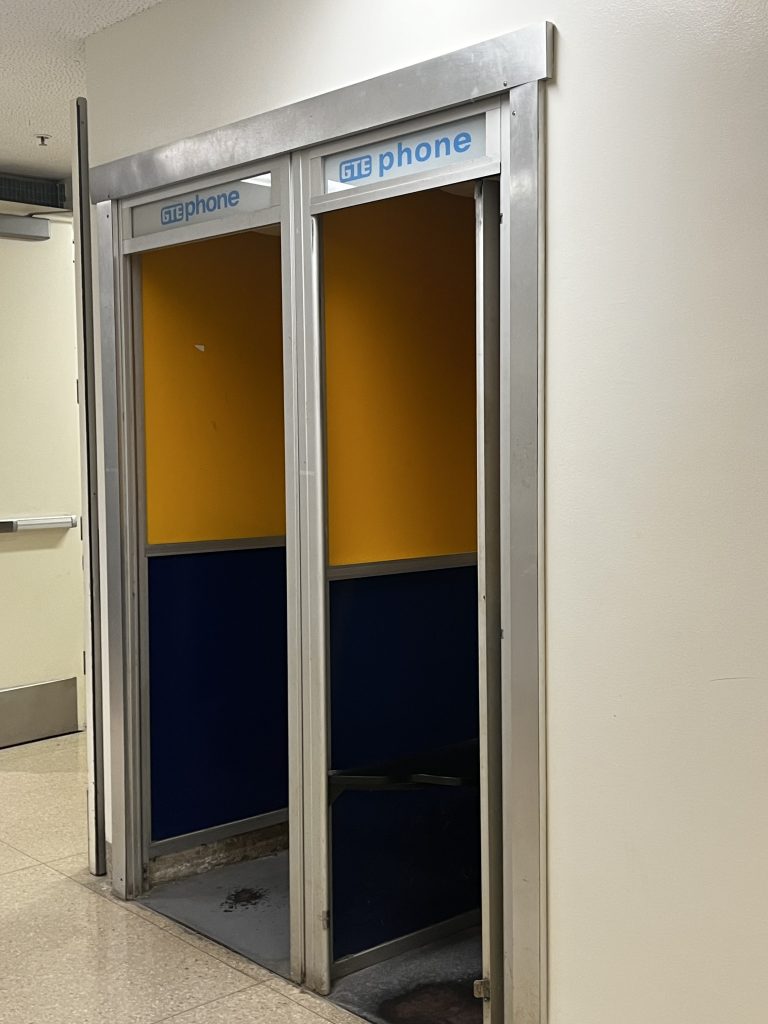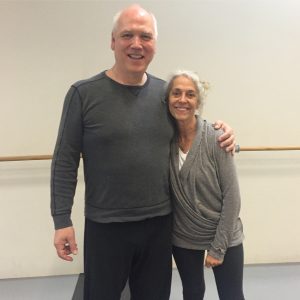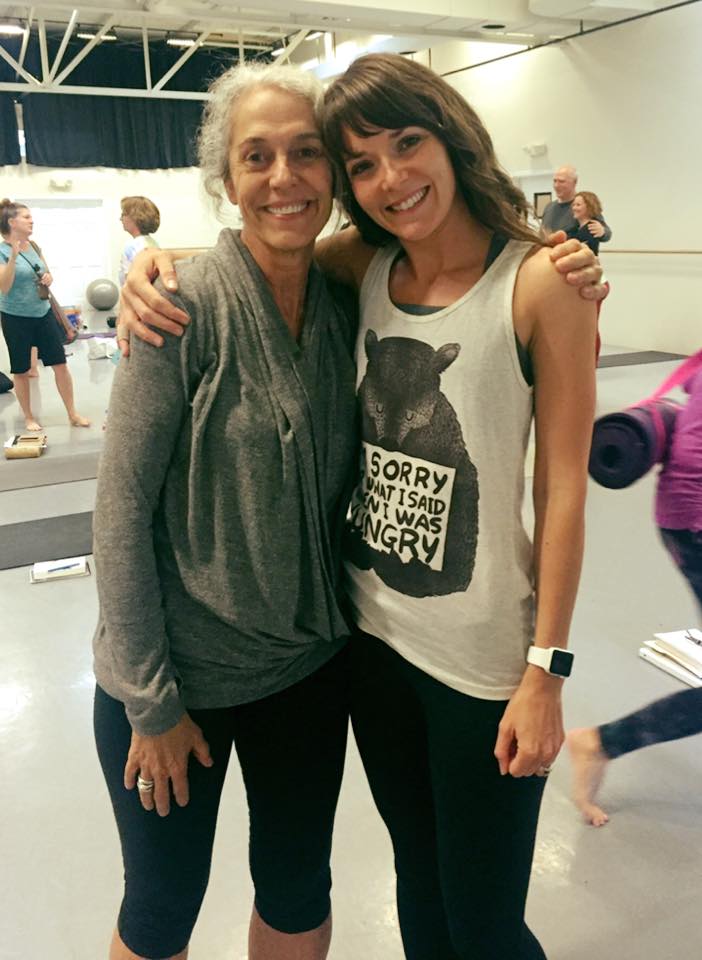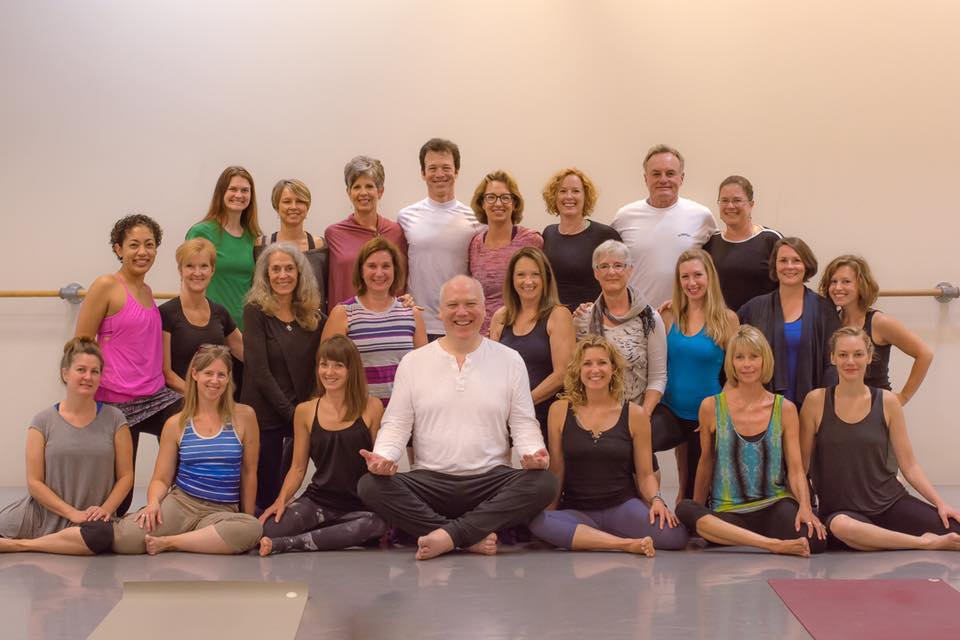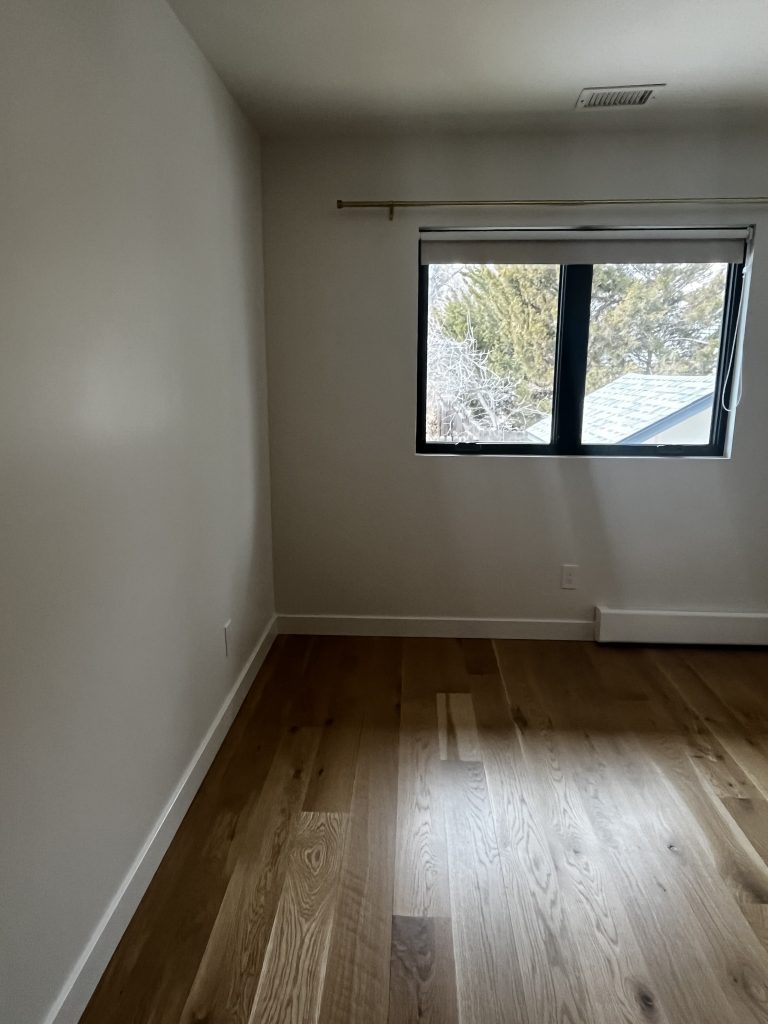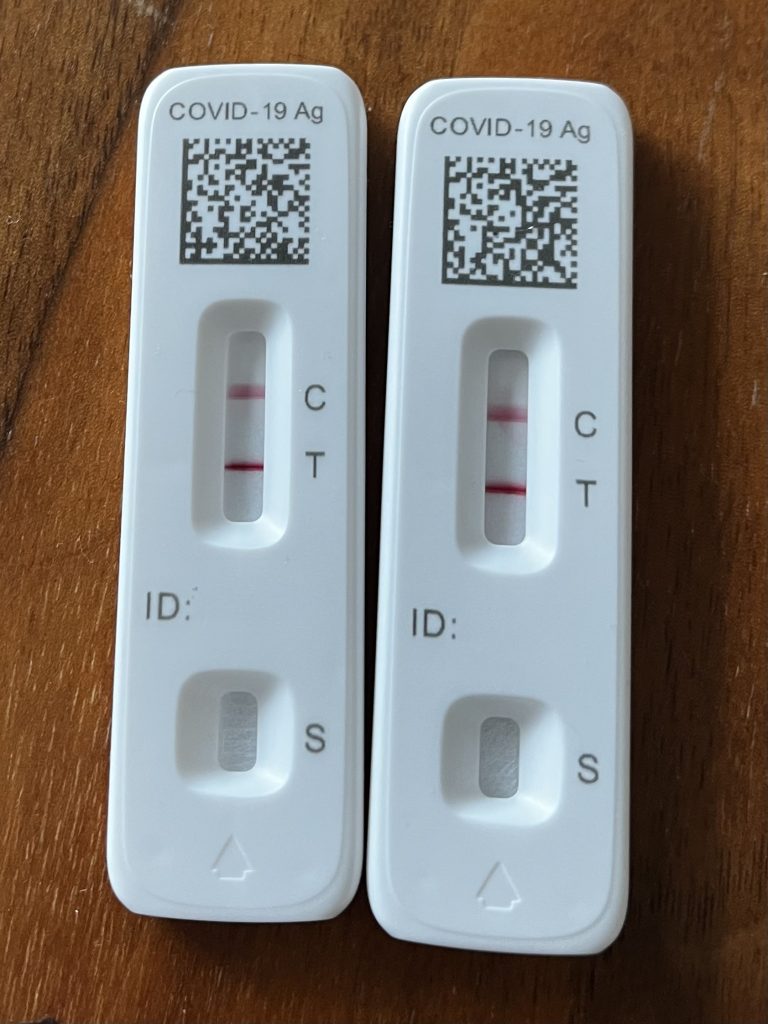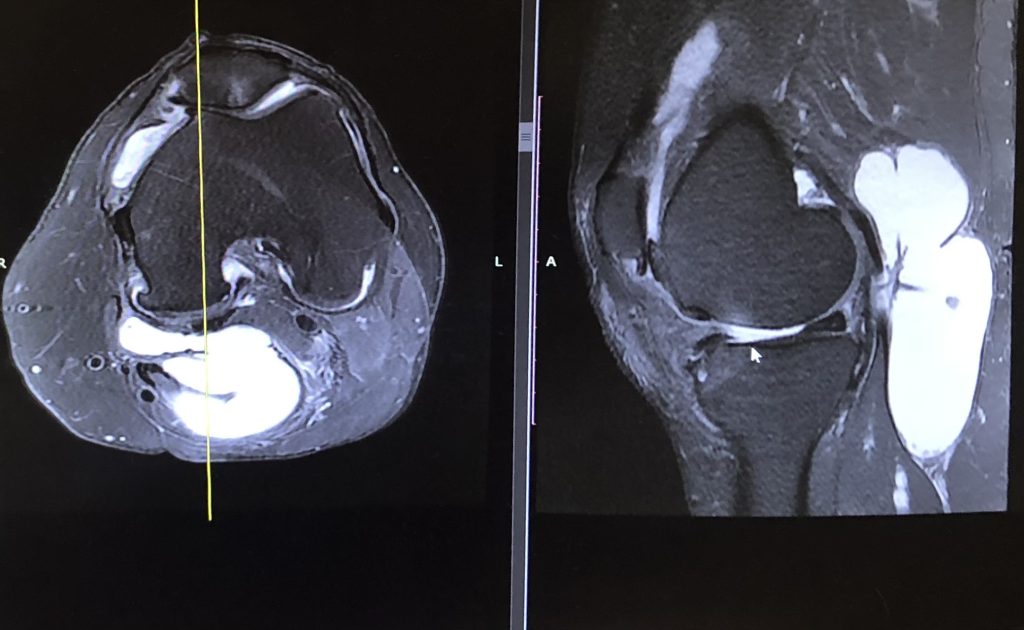
My left knee.
Last year, on September 12th, I began walking the Dingle Way in Ireland with my sister, Susan. It was the same route we walked in 2019, also starting on September 12th. On the same day in 2021, I was hiking in Eldorado Canyon with my Boulder friends and the year before that, I was shoveling six inches of snow from a “this rarely happens” snow storm in Boulder. September 12th has unintentionally become an important date for me. All three of the Camino walks I did started on September 12th, as well as a trip to Bhutan and Nepal and a 2020 trip to walk in the Burgundy region of France, which was cancelled due to Covid. This September 12th, I won’t be getting on a plane. I won’t be walking new trails or revisiting familiar ones. Instead, my adventure will be replacing one of my body parts. I will be getting a new left knee. I’d rather be headed out for a 500-mile Camino walk or even a 3-mile walk to anywhere at this point, but I suppose it’s all the walks that started on this auspicious date that have played a role in wearing old lefty out. She’s shot. And I’m replacing her with a new and improved model.
It’s not the experience I thought I’d be writing about this fall, but I decided it would be remiss of me to skip over thisjourney because that is exactly what it is, a journey. It was hardly what I expected and I’d choose packing bags and making reservations over poring over pages of information about “what I can expect,” but the process of this is upheaval of plans has become my teacher. I’ve learned that adventures don’t always involve airplane flights, packing bags or new trails. This adventure has become an unplanned journey into parts of myself that go beyond the hinge in the center of my leg that allows it to bend. It also put into place a sad list of cancellations, including a volunteer trip in Tanzania and a wedding in Utah. I can reschedule Tanzania, but am sad I won’t be able to attend the wedding of the daughter of dear friends of mine.
September 12th is still a few days away, but the adventure began in mid June while I was on the east coast visiting my sister, Susan. We hiked in the Adirondacks and lefty was strong enough that I was able to revisit Rooster Comb, which I’ve wanted to do since I last hiked it ten years ago. I needed to know if it was as hard as I recalled. Was it? Yes, it was challenging, but my memories have painted a much more difficult hike over the years. Or maybe, (and this is the explanation I prefer to go with), I’ve gotten stronger. When we got back to Susan’s home in the Berkshires, I had to cancel the hike we were going on the next day because in my heart of hearts I knew I wouldn’t be able to keep up the pace of her fellow hikers. My knee hurt. I had dealt with a little pain here and a little there for years, but was always able to work around it and hike to my heart’s content. This felt different. With all the “a little pain here and a little pain there” that’s been going on for over a decade, I’ve slowly been inching my way to the edge and the cancellation of a relatively easy hike was me hitting the proverbial wall with my left knee leading the charge. Time was up. I visited a recommended orthopedic surgeon when I got home, knowing what he’d say, only this time I lingered on his words “bone on bone, it won’t get better.” Having tried several remedies that included stem cell and hyaluronic acid injections, acupuncture, physical therapy, massage therapy and a few potions and lotions out of desperation, I knew it was time to get out my calendar and book a date. My last hope was a cortisone injection, which I was told could give me up to nine months of relief or possibly not work at all. I hung onto the nine months of relief and waited hopefully until a week had passed and I called the doctor and asked how long it would be before the shot would begin to work? I got my answer. It hadn’t worked. Unfortunately, I was one of the unlucky few. Before I was given the injection, my doctor told me there was one caveat. If it didn’t work, I wouldn’t be able to have surgery for twelve weeks. I didn’t give the twelve weeks a second thought as I knew it would work, but I did ask if it would hurt. He gave me a curious look and responded,
“You are dealing with bone on bone pain with your knee and you’re asking if the shot will hurt?? No. It won’t hurt.”
I was lucky to have my friend, Jane, along for that appointment. She’s been through knee replacement surgery before and worked as a medical attorney before retiring a few years ago. She asked questions I hadn’t even considered. All I could think to ask was how long before I can hike, how long before I can get on an airplane and how much will it hurt? I was also wondering about the scar, but kept the vanity questions to myself.
According to the calendar, twelve weeks after the injection fell on September 12th, which also happened to be the day after my two sisters would be coming out for a visit. I hated to trade in hikes in Rocky Mountain National Park and a week-long road trip through my beautiful state for surgery and post surgery care, but it seemed to be a lucky coincidence. My travel companions would become my home health care providers.
A few days ago, I was sorting out final plans on FaceTime with my sisters when Susan burst into laughter for no apparent reason. Robin and I both asked her what was so funny and she said,
“I just had a vision…Robin and I in her Honda driving across western Kansas and eastern Colorado with a walker, a cane and a raised toilet seat in the back seat and wedged in between the equipment, our knitting.” (Robin happens to have a friend who has a garage filled with much needed post surgery equipment and is a generous lender).
She was right to burst out into laughter. My how times have changed. Normally, there would have been hiking boots and poles or snow shoes in the winter, and way back in the day, when it was legal in some states, a cooler of beers to enjoy along the way. My two sisters, hauling equipment in the back seat of the car that will help me move across the room and trading in their Colorado vacation to come to my aid, makes me smile. They might as well speed on their journey west. No highway patrol officer, after seeing what they’re carrying in the back seat, would dare give them a speeding ticket.
During the time in June when I made my first hiking cancellation due to pain up until last week, my life has looked very different. I’m not hiking and because of that, I’m not seeing my hiking friends, or at least not as often as I used to. Instead, I have made it my summer of travel and discovery. I drove to Santa Fe for a few nights, ate dinner alone (as noted in a previous post) and meandered my way home with an impromptu stop in Taos for a night. I liked being in my car with little to no plans, making up my route as I went along. It felt good. It felt free. I savored the “out on the open road” mentality, although I doubt Jack Kerouac would use those words, but still…
A few weeks later, I traveled to Kansas City to celebrate my Dad’s 95th birthday then to LA to see my LA kids, followed by a trip to up the west coast to see my Portland kids, which included a few nights at the moody Oregon coast that fills my soul. I rounded off the summer with a trip to Rhode Island to celebrate my birthday with Susie, the girl I’ve called my best friend since I was 15-years-old. It’s been a good summer. I’ve missed the hiking and seeing my friends on the trails a few times a week, but these past few months have reminded me that the journey needs to hold as much weight as the destination. Often, that’s where the jewels are found, but you have to be going slow enough to catch their sparkle.
This four inch area in the middle of my leg has become my teacher these past few months. I’ve learned humility, vulnerability and honesty with my impaired abilities and am working on patience. Recently, I’ve become strangely in search of vertical scars that run the length of a stranger’s knee cap, because I’m both curious and nosey. I never noticed or gave a thought to this before. If I note a scar, my attention is then is redirected to their gait. Is the owner of the scar limping? Do they appear to be in pain? In a town as physically active as Boulder, the amount of vertical scars running down knee caps is far more common than I would have predicted and not all of them have silver hair. So far, all have had a healthy gait and none seem to be writhing in pain. I’m holding on to that as a good sign.
Along with the travel this summer, I’ve been “pre-habbing” my knee with daily trips to my rec center for the stationary bike and weight machines along with daily exercises to strengthen my legs. I’ve been told all the work on the front end will make for an easier and faster recovery. Those words alone have off set some of the “it’s not going to be easy” remarks from not only my doctor, but everyone I know who has had a knee replacement or knows someone who has.
My 50 year high school reunion is one month and a few days post op so have a goal. When I say 50 year reunion, it is with a gasp followed by a shake of my head because seriously, how in the world could it have been that long since I graduated from high school? When we’re all together after so many years, we will, without planning, become 17-year-olds again and the roles will come back like it was yesterday. Goals. I certainly wouldn’t have guessed three months ago they would include going to my 50th high school reunion without a walker.
This is phase one of my journey and chapter one of sharing my adventure. Somehow adding the word “adventure” makes it seem less awful. There will be more of this to follow.


